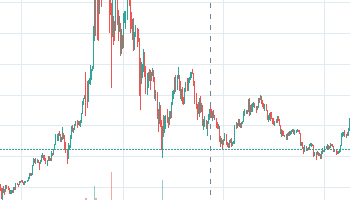Guess at this point, and after reading the Bitcoin Guide tutorial on how to store bitcoins, you will understand that what danger there is if someone gets these plain texts. Sure enough, you run out of bitcoins.
However, the same purses usually have a process to encrypt the private key with a password or PIN; that way when making a shipment, it will ask you for it; but if someone steals your private keys, they must know that key. That means that your private key is modified based on that password or PIN and is no longer useful as is.
The bad part is that if someone gets the encrypted private keys, they can use brute force for days, months or as long as it takes without you even realizing it and could decrypt them. In mobile phone wallets it is even simpler, since a 4-digit PIN code is deciphered in a matter of second and all this without giving you any kind of notice that your passwords have been compromised. Click on bitcoin-rejoin.com to know more.
On the other hand, if you can, and your wallet allows it, use a complex password to encrypt the keys. If the purse or purse generator you use gives you only the option to choose your private key, it will be time to choose a complex text complicated to generate by brute force for example a text of 200 alphanumeric characters with rare characters at can be Using something like one or more dictionary words or 012345 type numbers is a very, very bad idea.
The double authentication factor is a process used to verify your identity when accessing a web service, if you save the password that encrypts your private key printed on paper in Lastpass, it would be difficult for a criminal to gain access to both, but be careful, if you lose access to Lastpass you will not be able to remember the password. If you don't trust these apps, you can use standard AES encryption to protect your bitcoins. To do so, just download OpenSSL (or LibreSSL ) and do the encryption process.
Now, if you are going to manage large quantities, we recommend that you follow tip number 7.
Use authentication for trading the bitcoin
Are you a person who likes risk and have you deposited your bitcoins in a web service? In this case, we recommend that you use at least a second level of security. For instance, blockchain permit you to do this by using the SMS, or by using email. It is a very smart way to protect your bitcoins and any sensitive information. It sounds incredible, but it almost doesn't matter that you use lengthy or complex passwords today. 80% of passwords are stolen through phishing processes we recommend the chapter dedicated to Bitcoin scams with malware or snorting the network, not by brute force.
With the help of second security factor, it would be avoided that, if someone obtains your password, they can access your account, since they need a second unique key provided at the same time through an alternative route in addition to Google services.
Once synchronized with the service, after the password it will ask for a unique code that changes every 30 seconds. This code is delivered to you by the program you use to manage this second security factor. In this way, if someone takes your password, they will not be able to move the bitcoins, since they do not have that unique code.
It does not give you infallible security, since the criminal who has access to this second key that is generated could also access it, but it greatly increases your security due to the complexity of this happening.
But find out more about it so that you will not suffer with fraud. This is useless if what they corrupt is the server of the service where you have deposited your bitcoins. Therefore, a good rule in Bitcoin is to delegate your bitcoins to as few sites and as few as possible.
Possibly you have already reached this conclusion: “Never save my savings (large amounts) in an online service ".


 Updated every 10 minutes
Updated every 10 minutes


